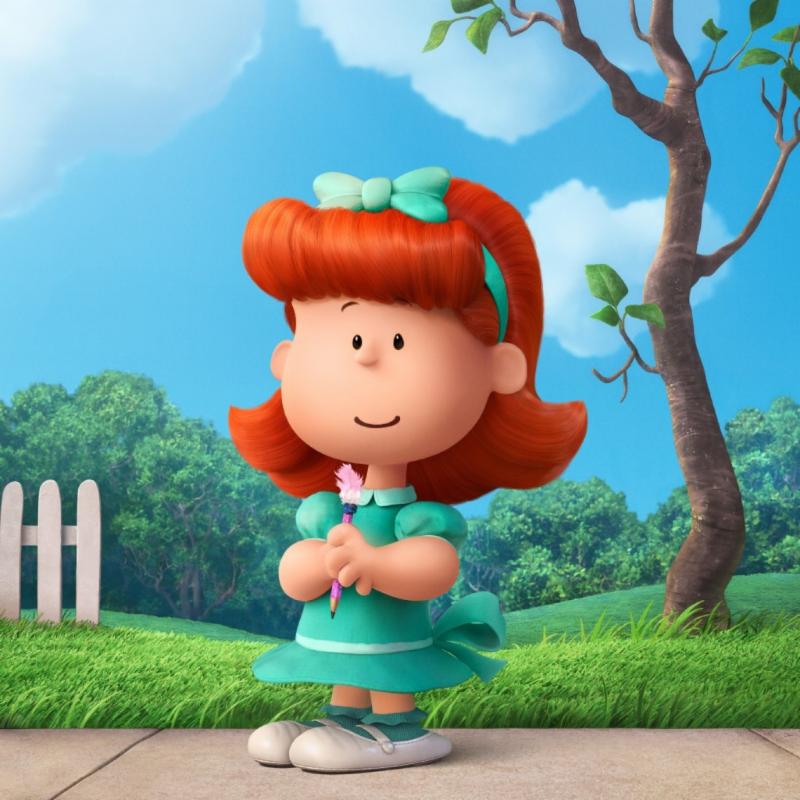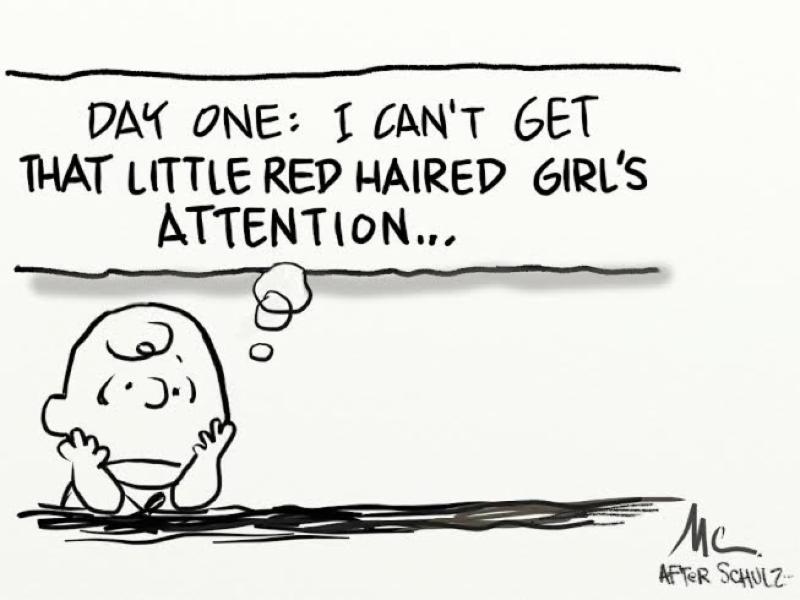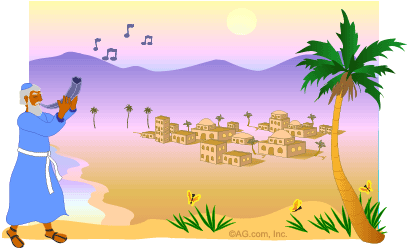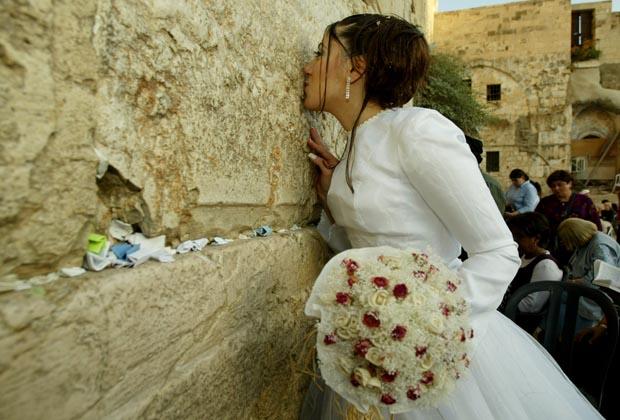










|
This article was constructed with the help of either writings, lectures or shiurim of Rabbi’s Noach Isaac Oelbaum, Asher Hertzberg, Yissachar frand, Berel Wein, Baruch Dopelt, Efraim Buchwald, Yossi Bilius and Dr. Abba Goldman and Aryeh Burnstien
  Does G-d forgive? How effective could we be to alter the unfavorable decree that has fallen upon us? Does G-d forgive? How effective could we be to alter the unfavorable decree that has fallen upon us?Can life really change drastically if we pray this Rosh Hashana or if we don’t?
If Rosh HaShana is such a crucial day of judgement, where life and death is dangled in front of us, why do we wear our finest cloths, have lavish meals and are in a festive mood? We should be in sack cloths and ashes begging for forgiveness, eating bread and water not French brick roast and the finest wine….Let’s not forget the deli roll.
Rav Pam z’l, the Rosh Yeshiva of the Mir once commented on the prayer that we say in Selichot prior to and during the Yomim Noraim (Days of Awe), “Like paupers and beggars do we come before You, knocking on Your door.” The simple interpretation is that we are paupers because we do not have sufficient good deeds to our credit. However, Rav Pam says that it is to be interpreted literally — when we appear before the Almighty on Rosh HaShana we are penniless. What does it mean we are penniless? I have money in the bank, I have a portfolio, I have a house, and I have assets! What does it mean, “I’m a pauper”?
Rav Pam explains that it means that nothing is a given. We start out afresh. There are no chazaka-automatics in life”. “You were healthy until now, but today there is a fresh judgment regarding what is going to happen now and for the coming year.” “You had success until now. Today there is a fresh Judgment.”
The reason we do not tremble before the Yom HaDin is because it is very hard for us to actually believe this idea. If a person is 50 years old, he figures that he has been through all this previously and things always seem to remain fairly stable. He assumes “Look, I just went for a physical and the doctor says I am doing quite well.” “I have been in my business or profession for 30 years; some years I do a little better and some years a little worse, but I have always had a steady income. What do you mean that I might not have parnasa this coming year?” We tend to assume that we are going into the Day of Judgment with a strong status quo in our favor. That is not true. It is very difficult for us to internalize this concept but the status quo is not guaranteed.
If we think about things we have seen and heard about during the past year, it will become all too clear how life can change in a minute. People are swept away by natural tragedies, by sudden changes of fortune, by unexpected diagnoses, and by unforeseen political changes. These sudden changes in one’s health or fortune or personal status are the most shocking things that can happen to a person. Yesterday, everything was wonderful. Overnight, things can change in such a way that a person is no longer able to function. However, such events do occur. That is the Day of Judgment of Rosh Hashana. There are no presumptions of status quo. We cannot be lulled into this false sense of security that we have been healthy, wealthy, and wise until now, presumably it will continue like that as well.
On Rosh HaShana, all bets are off. Like paupers and penniless people do we knock on Your doors. This is the reality. This is why the Din of Rosh Hashana is so awesome and scary.
 There is a very interesting and important parable that must be remembered in order for us to have a better understanding of the questions above:
The parents of a young girl mentioned a few times that she should be back at home at eleven. However, she was enjoying her time with her friends so immensely that she didn’t realize how late it became. Eleven became twelve, then twelve thirtyas she waltzed into her house with a content grin. Although she had pure intention and had no notion what’s so ever to rebel against her parents, it’s just that she had a blast, a really good time and rather come home she wanted to continue spending precious moments with her friends.
It was inevitable, her parents were furious and she was punished severely. The parents were worried sick, to say the least. The anguish that they went through, they called all her friends inquiring her whereabouts and if she was okay. They, actually, almost called the police, out of desperation.
The punishment she received made the girl learn a valuable lesson about responsibility. She learned a word is a word. From then on, if she is told to be home at eleven she will make every effort to be home on time.
There is an element of maturity, an elevation of responsibility that the girl learned from the experience. However, what takes her elevation to a much higher level is if she feels the anguish she caused her parents. If she feels horrible how can she have caused such pain to her Mother and Father? Here we have a crucial turning point in life. These are crucial Torah values and the beginning of a tremendous insight into the high holidays.
 There are many significant as well as inspiring meaningful moments during the course of the YAMIM NORAYIM High holidays. In the days of my youth, praying at the Sephardic shul in Forest Hills, many would attend and there would be two additional minyanim of significant size. There would be so many worshipers, the shul would be busting out of the seams. Everything was multiple sizes than a regular Shabbat attendance. Instead of having one punch ball game there would be five games going on at the same time. It was a kid haven. Interestingly, many of the non-observant, who attend perhaps once or twice a year, would be talking outside during services. Don’t forget they haven’t seen their friends conceivably for almost a year. It was very tempting for me, since I too have not seen my friends. However, during the Shofar blowing on Rosh HaShana as well as ne’ila at the end of Yom Kippur everyone would scramble inside, where it would be standing room only, to hear the shofar blowing. All would be quiet and one can see the sincerity on practically all the gatherers, whether it be the usual attenders as well as once a year individuals.
The sound of the shofar seeps through the soul of a Jew. The moment leading up to the blowing as well as “the moment” is very intense. The congregation feels the importance of the time. All eyes are on the chazzan and the shofar blower. I would feel the sounds vibrating through my whole being as I feel regret of all the sins I committed during the year. It is as if the pulsating sensation of the shofar sound was atonement for my sins.
Interestingly, there is a psalm that is recited seven times right before the shofar blowing. Psalm #47 that was written by the children of Korach. The psalm receives prime real estate being the intro to this significant moment. Who were Korach’s children and why were they deserving of such lofty honor? Why were they and their song chosen to persuade G-d to place us in the book of life? What is so special about this Psalm?
WHO WAS KORACH?
 Korach, one of the rich leaders of the Levites, and a cousin of Moses and Aaron, felt that he had been slighted and overlooked in the distribution of the highest priestly honors and leadership. He envied Moses and Aaron, and also his cousin Elzaphan, who had been put in charge of the Levites, after Aaron’s family had become elevated to the rank of Kohanim (Priests). An entire parsha in the Torah recounts the tragic incident of Korach’s rebellion and his downfall. As a result of being slighted, Korach spread evil slander against Moshe and caused a great rift in the Jewish nation. All of the people who joined Korach and supported him were killed in a most tragic yet deserving way. The Jews saw that G-d did not allow disrespect towards the great leader Moshe. Despite Moshe’s pleas with Korach and his followers to make peace so that they would not be punished, they stood their ground, and literally went down into the ground. Pride is a spiritual trait and very hard to control once it is let loose. One of the most tragic aspects of the incident was that all of Korach’s family who supported him, even young children perished because of the severity of machlokes, disputes.
Originally, the three sons of Korach who were Assir, Elkanah and Aviassaf, stood by their father’s side, however, when they witnessed the ground open up, they sincerely repented and as they were being swallowed into the ground a ledge protruded and caught them protecting them from falling into the fires of Purgatory.
It took enormous courage on the part of Korach’s sons to resist joining their father, and for this they were saved. They chose to do what they felt was right despite their training, despite the overwhelming outside influences. They were indeed seekers of truth.
That is why, according to some commentators, Korach’s three children are referred to in the verse as the “Sons of Korach,” even though that label has negative connotations. By noting that they are the sons of Korach, the Torah is actually praising them for their bold actions. Despite being the sons of Korach, the wicked schemer against G-d and Moses, they were not drawn into their father’s rebellion.
One of the most beautiful literary legacies in all of human literature is the Book of Psalms. Most of the 150 psalms are attributed to King David. A few are ascribed to Moshe and King Solomon and others. Psalm # 47, however, begins with the words: “Lam’na’tzay’ach liv’nay Korach, mizmor,” For the conductor, by the sons of Korach, a song.
Not only did Korach’s children remove themselves from the rebellion, they and their descendants reached such great spiritual heights that they were able to compose magnificent psalms. Of all 150 psalms, it is psalm #47, written by the sons of Korach, that is chosen to be recited before the sounding of the shofar on Rosh HaShana. It reaffirms the belief that if the sons of Korach can repent, so can others. If they could resist the influence of one of the greatest propagandists of all times, then we can as well. It assures us that even though no one was closer to Korach than his sons, even though they were deeply involved in the rebellion, they were able to detach themselves from the rebellious assembly.
Psalm 47:2 reads: “Sound the shofar with a joyous cry,” because we can overcome outside influences and beat evil at its own game. Like the sons of Korach, each of us can rise above destiny and outwit the unholy influences that try to derail us.
In Chronicles I 6:18-22, we learn that the great prophet Samuel is a descendant of the sons of Korach. How exceptional is the power of repentance! That from Korach’s sons – a tsaddik, one of the greatest prophet emerged.
The later Biblical history nonchalantly relates that Korach’s direct descendant Heman was one of King David’s appointees to be in charge of song in the Temple (I Chronicles 6:16-23), and others of Korach’s descendants were the Temple gatekeepers and chefs (I Chronicles 9:17-32). Quite a turnaround: from Korach being the chief threat to the Priesthood, to his descendants directing security and food production – areas where one can most easily murder, poison, stage a coup. Apparently it wasn’t just Heman who had musical prowess, as ten of the Bible’s Psalms are attributed in their first line to the children of Korach (Psalms 42, 44-49, 84, 85, and87). The Rabbis seem to understand the significance of this, in that their Midrash-special insights on Psalm 1, which is not authored by Korach’s children, reads the whole poem as actually telling the story of Korach’s children’s rejection of their father’s ways, as if to say that the central theme of the book of Psalms is Korach’s children’s authorship of many of its poems.
Psalm 1 opens, “Happy is the person who does not walk in the council of the wicked”. The Rabbis explain, “This is the sons of Korach, who did not walk in the council of their father, as is said, ‘Turn away please, from the tents of these wicked men’ (Bemidbar 16:26). .
BEFORE THE SHOFAR BLOWING A VERY IMPORTANT LESSON
What’s the big deal about Korach’s sons? Someone’s life flashes in front of them and they hang on to dear life, by the skin of their teeth or else they will be swallowed up by the ground beneath them, of course they’re going to do teshuva-going to repent. It’s a no brainier!! This act, is similar to many heroes in our illustrious history, doesn’t deserve a front row seat before the shofar blower.
One has to realize, although it must have been very difficult to resist the strong current of the peer pressure, the key to Sons of Korach greatness, though, is not that they relinquished their father’s ideology the last second, although it’s very commendable, lies in the first verse ,” For the conductor, by the sons of Korach, a song”.. Song permeates emotions. Granted, they regretted their sins nevertheless, they stand out from others in our illustrious past, and they were enthusiastic to a degree that they sang. They were enthusiastic for they knew it made G-d happy. The idea we said before with the girl who stayed out late to prolong her “good time” with her friends. It’s not that a teenager is afraid of her parents for she knows if she does wrong she’ll be punished, she will lose her computer time or get grounded. It’s the fact that the teenager won’t do wrong for she doesn’t want to upset her parent and hurt their feelings. She wants to make them happy.
In essence TESHUVA means to return; return to the source. Just like when a child returns home to see his parents after a long term separation. The child is excited; he desires that feeling…. He feels tremendous joy. He is ecstatic to see his parents happy too. He glances in their eyes and is excited to see their joy… So too is the feeling when one repents and returns to G-d. He is excited for G-d for he also returned home. This is an elevated state of mind and a feeling one should strive.
The RAMBAM says one has a guarantee that the teshuva-repentance will be accepted if he does it or for that matter all mitzvot with love and enthusiasm. This is the proper attitude, an elevated attitude of happiness that the sons of Korach had.
Rabbi Chain Shmuelevtz – the great and revered Rosh Yeshiva of the Mir once said Purim is more powerful than Yom Kippur. How is that possible? Purim is holier than Yom Kippur? There is a play on words KIPPUR-IM.; it’s read KEH-PUR-IM. Yom Kippur is like Purim, insinuating that one can achieve a positive judgment from joy of the festive of Purim than the fear of Yom Kippur.
For this reason the famous phrase IVDU ET HASHEM B’SIMCHA – serve G-d with joy. That is a loaded statement which holds the key to success and long sweet life. So we wear our finest cloths and are joyous and be in a darn good mood. This is how we are able to win a positive decree and
|
|
This article was constructed with the help of either writings, lectures or shiurim of Rabbi’s Yissachar frand, Berel Wein, Tzvi Patinski, Yossi Bilius and Dr. Abba Goldman
  Imagine being served bagels and lox for breakfast, every morning, for the last 3000 years. That is the custom menu for a brit milah (circumcision) and what Eliyahu Hanavi has been subjected to as he predictably appears as the honored guest, with the front row seat. Every nuance of the ceremony automatically is recognized by him; any cookie or bagel tasted by him can easily be linked to the caterer. He’s an expert on all aspects of the brit milah ceremony. Though, he would probably welcome something a little different after all these years. Eliyahu was a prophet and a wonder-worker in the northern kingdom of Israel during the reign of Achav (9th century BC). We know that at every Brit (Circumcision) there is an area set aside as the “Chair of Eliyahu” right where the actual circumcision takes place. Eliyahu is, as it were, the distinguished guest who appears at every Brit Milah.
Why is Eliyahu at every brit? Why is Eliyahu Ha’navi such a central figure at a brit milah? After all, this is a mitzvah associated with Avraham Avinu, as demonstrated by the blessing we recite–“To bring [the child] into the brit /covenant of Avraham Avinu”!
Furthermore, better late than never, we open the door for Eliyahu towards the end of the Pesach seder and pour an extra cup of wine dedicating it to him. Is there a common bond between the Pesach seder invite and Eliyahu attending every brit?
This week’s parsha begins as a continuation of the incident at the end of last week’s. We read how Pinchas was enraged with the actions of Zimri ben Salul, who challenged Moshe’s authority by taking a non-Jewish woman into the tent, in front of the entire nation to have an illicit relationship. Pinchas was so furious with the audacity of Zimri that after receiving permission from Moshe, he entered the tent and speared the two sinners to death. His brazen act of zealousness was praised by G-d and he was rewarded greatly.
The courageous act that Pinchas performed was one of zealotry. It’s defending G-d’s honor!! It’s an act of tremendous love towards G-d par excellence. Is he a role model for others to follow? Are we to learn how to be a zealot from his actions? Is there a course, perhaps a home study edition on how to be a zealot?
Apparently, it seems like the Talmud and Jewish traditions are of the opinion that only Pinchas’s act of zealotry is to be admired. All other acts of unilateral zealotry in Jewish society in later generations are to be shunned. The prophet Eliyahu, who in Jewish tradition is identified somehow with Pinchas, is chastised by Heaven to moderate his zealotry and despair regarding the acknowledged evils of Jewish behavior in his time.
Our history seems to support this view. Shimon and Levy, number three and four from the twelve tribes, though heroes to their brothers, were reprimanded by their father Yaakov for wiping out the city of Shechem for allowing the rape of their sister Dina. It seems from the last will and testaments of Yaakov, which was disclosed in parshat V`yechi, that it’s not quite a popular idea to be a zealot.
According to Jewish tradition Pinchas was, in fact, Eliyahu Hanavi. Eliyahu Hanavi is one of the most fascinating people in Tanach and Rabbinic literature. Ironically, he appears in our Rabbinic literature as an old cute grandfather type, who is a beloved guest at our every holiday and life cycle event. We even sing a song about him after Havdalah (end of Shabbat).
 However, this is far removed from the persona of Eliyahu in much of Tanach. We find a very interesting comment from our Sages pertaining to the famous showdown with Eliyahu and king Achav and Queen Izevel’s false prophets at Mount Carmel [Melachim I Chapter 18]. Eliyahu challenged the false prophets of Baal to bring down a fire from Heaven to accept their offerings. They were unable to do this. However, Eliyahu succeeded in bringing down a fire from Heaven to accept his own offering. All the people fell on their faces, prostrated themselves, and declared “Hashem, He is G-d.” This is the famous proclamation that reverberates throughout our synagogues at the conclusion of Yom Kippur. However, this is far removed from the persona of Eliyahu in much of Tanach. We find a very interesting comment from our Sages pertaining to the famous showdown with Eliyahu and king Achav and Queen Izevel’s false prophets at Mount Carmel [Melachim I Chapter 18]. Eliyahu challenged the false prophets of Baal to bring down a fire from Heaven to accept their offerings. They were unable to do this. However, Eliyahu succeeded in bringing down a fire from Heaven to accept his own offering. All the people fell on their faces, prostrated themselves, and declared “Hashem, He is G-d.” This is the famous proclamation that reverberates throughout our synagogues at the conclusion of Yom Kippur.This story is told in the Haftorah of Parshas Ki Tisa. The Haftorah ends with those words: “Hashem hu haElokim.” However, that is not how the story ends in Tanach. The narration in the book of Melachim continues “Eliyahu said to them, ‘Seize the prophets of Baal! Let none of them escape!’ So they seized them. Eliyahu took them down to the Kishon Brook and slaughtered them there.” [Melachim 1 18:40] The wicked Queen Izevel heard what Eliyahu did to her prophets and sent a message pledging to do the exact same thing to him that he did to the prophets of Baal. Eliyahu is forced to flee to the desert where he sees a vision of G-d on Har Horeb (Har Sinai). In a series of questions, G-d first asks Eliyahu what he is doing there.
Eliyahu indicts the Israelites for their wicked deeds. He gets down on his own people!! The honor of G-d overrides the compassion of the Jewish people. Was he right? G-d then proceeds to show him a vision of Wind, Thunder, and Fire in which G-d is in none of these, followed by a soft still voice in which HE appears. As the Malbim explains, G-d is trying to communicate to Eliyahu through this vision that the proper approach of a prophet towards his people should not be one of harsh rebuke and stinging indictment but rather to pull them with cords of love and soft words.
G-d’s persuasion, however, is gone unnoticed. Eliyahu is a zealot and will not change this about himself. The honor of G d has been defiled!!
 Eliyahu seems to hardly be the cute old smiley little grandfather that he is depicted in rabbinic literature. Based on this portrayal, it’s doubtful that we would want to invite him to our Brit Milah or Seder. Eliyahu seems to hardly be the cute old smiley little grandfather that he is depicted in rabbinic literature. Based on this portrayal, it’s doubtful that we would want to invite him to our Brit Milah or Seder. G-d’s question to Eliyahu implied some measure of criticism. G-d chastised Eliyahu for not talking properly about His people. “Do not say about My People ‘they have not kept Your Covenant!’ Do not talk that way about Jews! You should have said, “They are Your children, descendants of Avraham, Yitzchak, and Yaakov.”
There was never a more ‘for the sake of Heaven’ zealot in the history of the world than Eliyahu the prophet. He is the paragon of the proper form of zealotry. G-d rewarded him for it. But even that zealot was less than perfect because at the same time that he defended the Honor of G-d, he was too harsh in his attitude toward the Jewish people. The Jews had to be admonished, true, but he was just a little too strong. He should not have said “They have forsaken Your Covenant (Brit).”
We are told that Eliyahu the prophet attends every circumcision (Bris) of Jewish babies. Part of the ritual is to reserve a chair for Eliyahu. The reason why he must attend every Brit is a decree from G-d. Eliyahu must attend every Bris in order to recognize that he was wrong. The nation of Yisrael does keep the Covenant (Brit)!
This is the difficulty of being a zealot. Balancing Kavod Shamayim-love and honor of G-d with love of one’s fellow Jewish brothers can be challenging to say the least. We have experienced how individuals for the love of G-d believe they have a license to trample other Jews. This is a common stumbling block of being a zealot. One tends to overlook that perhaps, their actions are not so pure and possibly motivated by self-interest.
Interestingly, Eliyahu is mentioned in Tanach one more time. Eliyahu makes one last crucial appearance in Tanach in the last chapter of the Prophets.
“Behold I will send for you Eliyahu the prophet before comes the Day of the Lord, the Great and Awesome Day. And he will turn the hearts of the fathers to the sons and the hearts of the sons to the fathers lest I come and destroy the land totally”. What this statement seems to imply is the answer to our introductory questions.
SEDER NIGHT AND THE CUP OF ELIYAHU
 Let’s explain: Concerning the Cup of Eliyahu that we pour on the Seder night, it has a strong basis because the reason for preparing the Chair of Eliyahu at the time of the Milah and giving Eliyahu the nickname the Malach HaBrit-angel of the covenant is because… the mouth who indicted Israel stating that they forsook the Brit is the very mouth who will give testimony in support of Israel and become their defense attorney when he sees that they are keeping the Brit.
A famous Midrash which states that since Eliyahu was the prosecutor against the Children of Israel accusing them of forsaking the Brit, his Tikkun for all eternity is that he will attend every Brit Milah and be able to testify forever that in fact the Jewish people have not forsaken the Brit. He will testify that through all generations even in times of great persecution and personal sacrifice, the Jews have kept the Brit.
We see here the clear connection between the Chair of Eliyahu and the Cup of Eliyahu since the mitzvah of Milah and the mitzvah of Pesach are interconnected. A male cannot perform a Karban Pesach unless he has a Brit Milah. Zealotry is such a dangerous trait that even the noble Pinchas-Eliyahu can overdo it, by uttering just a single word that is too strong. This demonstrates how delicate and careful one must be when wielding the sword of zealotry. |

Raising children is a handful. For the most part, it’s all too common, that each parent commits himself to play a different role in order to raise them in the best way possible. What tends to happen, naturally, one parent is strict and the other is lenient. It’s the old “good cop – bad cop” routine. My childhood friend’s mother would always frighten the boys by saying “I’m going to tell Abba”. Their father was a hot tempered hard working man. The negotiation blackmail tactic always worked; the boys were scared. Between my parents, though, my mother was the strict one. Those who know my wife and me can take an educated guess on who wears the badge in the family. Interestingly, it’s a concept that is applied to many aspects of life and is the lifeblood of our relationship with G-d. We pray accordingly; we eat accordingly; we live accordingly to this concept. Ironically, many of us don’t even know it.
 We know one of the Jewish character traits that G-d holds in high esteem is modesty. Why would the Jewish men actually take the bait and get seduced by the non-Jewish women? After all this was a superior generation. So it seems odd that Bilaam would pursue that route knowing that his chances are slim. Perhaps he knew something that we don’t know.
We know one of the Jewish character traits that G-d holds in high esteem is modesty. Why would the Jewish men actually take the bait and get seduced by the non-Jewish women? After all this was a superior generation. So it seems odd that Bilaam would pursue that route knowing that his chances are slim. Perhaps he knew something that we don’t know.


